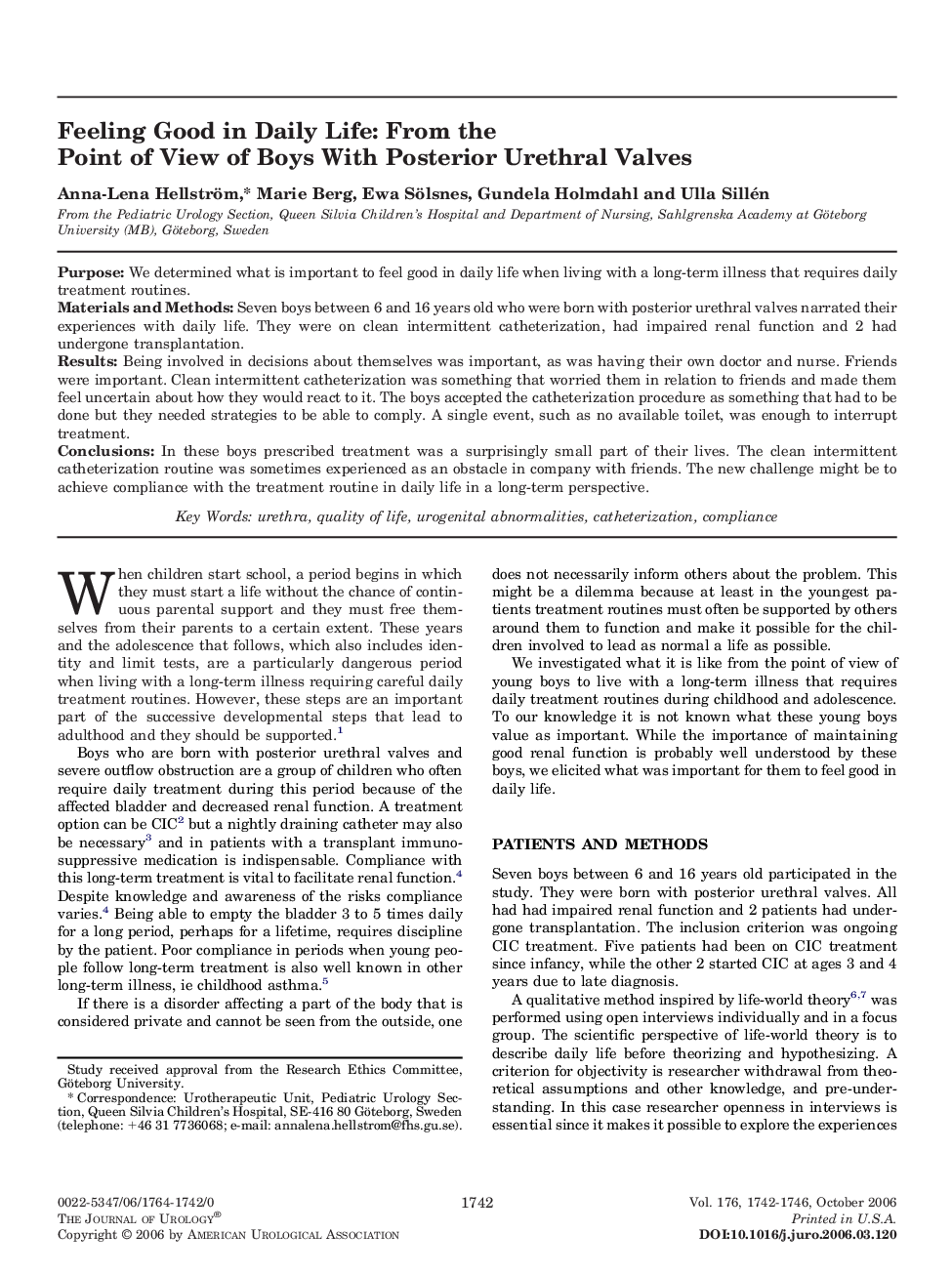| Article ID | Journal | Published Year | Pages | File Type |
|---|---|---|---|---|
| 3876229 | The Journal of Urology | 2006 | 5 Pages |
PurposeWe determined what is important to feel good in daily life when living with a long-term illness that requires daily treatment routines.Materials and MethodsSeven boys between 6 and 16 years old who were born with posterior urethral valves narrated their experiences with daily life. They were on clean intermittent catheterization, had impaired renal function and 2 had undergone transplantation.ResultsBeing involved in decisions about themselves was important, as was having their own doctor and nurse. Friends were important. Clean intermittent catheterization was something that worried them in relation to friends and made them feel uncertain about how they would react to it. The boys accepted the catheterization procedure as something that had to be done but they needed strategies to be able to comply. A single event, such as no available toilet, was enough to interrupt treatment.ConclusionsIn these boys prescribed treatment was a surprisingly small part of their lives. The clean intermittent catheterization routine was sometimes experienced as an obstacle in company with friends. The new challenge might be to achieve compliance with the treatment routine in daily life in a long-term perspective.
